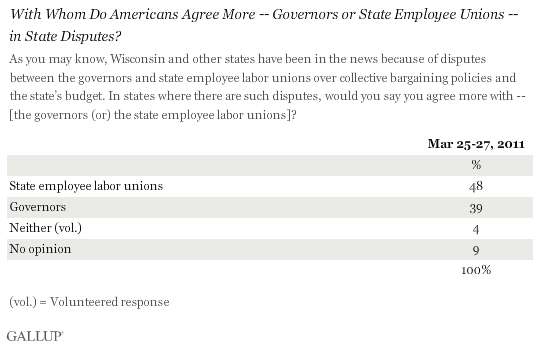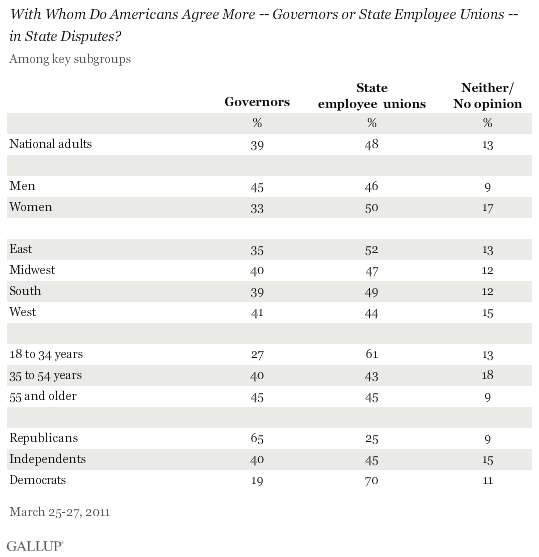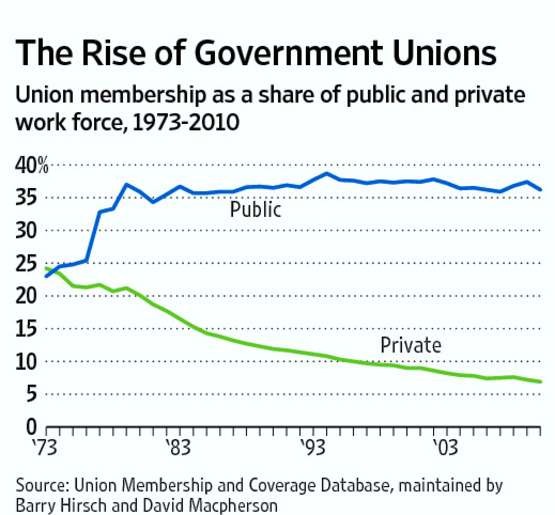-
Video: Union Leaders Teach Advanced Thug Tactics in University of Missouri Labor Courses
If you ever wondered if today’s LEFTIST union leaders ever read Saul Alinsky, now you know.
The University of Missouri has an expansive $1.9 billion enterprise with an operating budget of $500 million which, according to its website, 37% comes through state appropriations. While the University’s Institute of Labor Studies may only be a small fraction of its budget, one must wonder why tax dollars are being used to fund a program that espouses Communism, teaches tactics in industrial sabotage (including stalking CEOs, using members to insinuate sabotage, as well as the killing of cats), and convincing union members that their “group goals” are more important than their individual goals.
The videos you are about to see [via BigGovernment] are of two “educators” holding courses via video conference through the University of Missouri-St. Louis (UMSL) and the University of Missouri-Kansas City (UMKC). The courses are an Introduction to Labor Studies and Labor Politics and Society. The instructors are Judy Ancel, Director of UMKC’s Institute of Labor Studies and Don Giljum, a self-described Communist and Business Manager of the International Union of Operating Engineers Local 148.
Watch the videos and understand why companies like Boeing Corporation are moving their manufacturing facilities to Right to Work states.
Video #2:
After watching both videos, do you now understand the Wisconsin public employee protests at the State Capitol and the various intimidation tactics used against Governor Scott Walker and GOP legislators?Exit question: In light of this knowledge, of how the unions create chaos as a bargaining tactic, do Americans really want public employee unions collectively bargaining with the government?
-
Poll Watch: Americans Support Unions Rather than Governors in State Budget/Collective Bargaining Disputes?

Yes, according to the latest Gallup Poll.With political battles over state budgets and collective bargaining still playing out to varying degrees in Wisconsin, Ohio, Indiana, Maine,and several other states, 48% of Americans say they agree more with the unions in these disputes, while 39% agree more with the governors. Thirteen percent favor neither side or have no opinion.
And, how do the numbers break down by groups?

I am not really surprised as Americans generally support the little guy, the average American rather than a budget balancing POL.
But, isn’t this why the states and the federal government have run up massive amounts of debt? The fact is the political pressure from voters is always to accommodate and say yes to more salaries/benefits and government spending.
So, what does this mean?
Previous Gallup research about the issues involved in these debates revealed some ambivalence among Americans toward the labor unions’ positions. While Americans polled in February were generally opposed to reducing state workers’ pay, benefits, and collective bargaining rights, they were even more widely opposed to raising taxes. Also, Americans were evenly divided over whether government unions are more helpful or harmful to states.
Today, neither the governors nor the unions appear to have a strong advantage in the court of public opinion nationally, but the unions do have the slight edge, 48% to 39%. This is in keeping with decades of Gallup polling finding Americans generally approving of labor unions.
-
Update: Wisconsin Democrat Fleebaggers to End Union Standoff and Will Return to Vote – Not Until Collective Bargaining is Off the Table
+++++Update+++++Well, not so fast. The Wisconsin Fleebaggers aren’t coming back to Wisconsin after all.
Wisconsin State Senator Chris Larson: Sen. Miller’s comments are taken out of context in the Wall Street Journal article just released. Dems will return when collective bargaining is off the table. That could be soon based on the growing public opposition to the bill and the recall efforts against Republicans. Unfortunately, the WSJ fished for the quote they wanted, skipping this key step in logic: we won’t come back until worker’s rights are preserved.
Union solidarity rallies continue outside the Wisconsin Capitol as filmmaker Michael Moore tells the crowd that America is not broke, but that the elite controls the money.The Wisconsin Democrat State Senators who fled the state rather than vote on union legislation supported by the Wisconsin GOP and Republican Governor Scott Walker are ending their stand-off and will return to the Capitol.
Playing a game of political chicken, Democratic senators who fled Wisconsin to stymie restrictions on public-employee unions said Sunday they planned to come back from exile soon, betting that even though their return will allow the bill to pass, the curbs are so unpopular they’ll taint the state’s Republican governor and legislators.
The Wisconsin standoff, which drew thousands of demonstrators to occupy the capitol in Madison for days at a time, has come to highlight efforts in other states to address budget problems in part by limiting the powers and benefits accorded public-sector unions.
Sen. Mark Miller said he and his fellow Democrats intend to let the full Senate vote on Gov. Scott Walker’s “budget-repair” bill, which would also limit public unions’ collective bargaining rights. The bill, which had been blocked because the missing Democrats were needed for the Senate to have enough members present to consider the bill, is expected to pass the Republican-controlled chamber.
He said he thinks recent polls showing voter discontent with Mr. Walker over limits on bargaining rights have been “disastrous” for the governor and give Democrats more leverage to seek changes in a broader two-year budget bill Mr. Walker proposed Tuesday.
Andrew Welhouse, a spokesman for Republican Senate Majority Leader Scott Fitzgerald, said the short-term budget-repair bill can no longer be amended. He said when Democrats return they will be able to speak on the bill, “but we plan to pass it as soon as possible.”
Wisconsin has severe budget problems like a number of states. If Wisconsin voters don’t like what Governor Scott Walker and the GOP have done to balance things, then they can vote them out of office and reverse the union collective bargaining reforms at the next election.
Somehow, I don’t think that will happen.
-
Video: Wisconsin Democrat Fleebaggers to End Union Standoff and Will Return to Vote
Union solidarity rallies continue outside the Wisconsin Capitol as filmmaker Michael Moore tells the crowd that America is not broke, but that the elite controls the money.The Wisconsin Democrat State Senators who fled the state rather than vote on union legislation supported by the Wisconsin GOP and Republican Governor Scott Walker are ending their stand-off and will return to the Capitol.
Playing a game of political chicken, Democratic senators who fled Wisconsin to stymie restrictions on public-employee unions said Sunday they planned to come back from exile soon, betting that even though their return will allow the bill to pass, the curbs are so unpopular they’ll taint the state’s Republican governor and legislators.
The Wisconsin standoff, which drew thousands of demonstrators to occupy the capitol in Madison for days at a time, has come to highlight efforts in other states to address budget problems in part by limiting the powers and benefits accorded public-sector unions.
Sen. Mark Miller said he and his fellow Democrats intend to let the full Senate vote on Gov. Scott Walker’s “budget-repair” bill, which would also limit public unions’ collective bargaining rights. The bill, which had been blocked because the missing Democrats were needed for the Senate to have enough members present to consider the bill, is expected to pass the Republican-controlled chamber.
He said he thinks recent polls showing voter discontent with Mr. Walker over limits on bargaining rights have been “disastrous” for the governor and give Democrats more leverage to seek changes in a broader two-year budget bill Mr. Walker proposed Tuesday.
Andrew Welhouse, a spokesman for Republican Senate Majority Leader Scott Fitzgerald, said the short-term budget-repair bill can no longer be amended. He said when Democrats return they will be able to speak on the bill, “but we plan to pass it as soon as possible.”
Wisconsin has severe budget problems like a number of states. If Wisconsin voters don’t like what Governor Scott Walker and the GOP have done to balance things, then they can vote them out of office and reverse the union collective bargaining reforms at the next election.
Somehow, I don’t think that will happen.
-
Why Wisconsin Governor Scott Walker MUST Stay the Course
Mickey Kaus makes the argument.
It’s all about the deficit to Brooks. But the damage done by public sector unionism isn’t mainly the producing of deficits. It’s the crippling of government, so that bad teachers can’t be fired and productivity stagnates and virtually everything the government does it does crappier than private industry does it. That’s a big, ongoing problem for Democrats, which is why maybe it doesn’t trouble Brooks. But it should trouble even non-neo liberals. Democrats are the party that needs the government to be good at something other than mailing out checks.
Is Gov. Walker using the deficit as an excuse for making long-term institutional changes? You bet. It’s “all or nothing” because when you threaten the core institutional basis of AFSCME and the SEIU they will make it all or nothing. They have no choice.
It would be a disaster for union reform if Walker succumbs to Brooksian flaccidity now–whether his position is popular or not. The message, as gleefully interpreted by the MSM, would be that Republicans go too far when they threaten the treasured institution of government unionism (never mind that Gov. Mitch Daniels of Indiana ended state employee union collective bargaining six years ago, by executive order, and he still stands). That would be worse than if Walker had never made the attempt. He has the votes and can pass the bill whatever the polls say–just as Obama had the votes on his health care bill despite poll-measured popular disquiet.
Obama pushed his law through, took the heat, and may emerge victorious. Walker should do the same.
-
Union Education: What Wisconsin Reveals About Public Workers and Political Power
 A great primer in the Wall Street Journal this morning.
A great primer in the Wall Street Journal this morning.The raucous Wisconsin debate over collective bargaining may be ugly at times, but it has been worth it for the splendid public education. For the first time in decades, Americans have been asked to look under the government hood at the causes of runaway spending. What they are discovering is the monopoly power of government unions that have long been on a collision course with taxpayers. Though it arrived in Madison first, this crack-up was inevitable.
We first started running the nearby chart on the trends in public and private union membership many years ago. It documents the great transformation in the American labor movement over the latter decades of the 20th century. A movement once led by workers in private trades and manufacturing evolved into one dominated by public workers at all levels of government but especially in the states and cities. (…)
The sharp rise in public union membership in the 1960s and 1970s coincides with the movement to give public unions collective bargaining rights. Wisconsin was the first state to provide those rights in 1959, other states followed, and California became the biggest convert in 1978 under Jerry Brown in his first stint as Governor. President Kennedy let some federal workers organize (though not collectively bargain) for the first time in 1962, a gambit to win union support for his re-election after his cliffhanger victory in 1960.
It’s important to understand how revolutionary this change was. For decades as the private union movement rose in power, even left-of-center politicians resisted collective bargaining for public unions. We’ve previously mentioned FDR and Fiorello La Guardia. But George Meany, the legendary AFL-CIO president during the Cold War, also opposed the right to bargain collectively with the government.
Why? Because unlike in the private economy, a public union has a natural monopoly over government services. An industrial union will fight for a greater share of corporate profits, but it also knows that a business must make profits or it will move or shut down. The union chief for teachers, transit workers or firemen knows that the city is not going to close the schools, buses or firehouses.
This monopoly power, in turn, gives public unions inordinate sway over elected officials. The money they collect from member dues helps to elect politicians who are then supposed to represent the taxpayers during the next round of collective bargaining. In effect union representatives sit on both sides of the bargaining table, with no one sitting in for taxpayers. In 2006 in New Jersey, this led to the preposterous episode in which Governor Jon Corzine addressed a Trenton rally of thousands of public workers and shouted, “We will fight for a fair contract.” He was promising to fight himself.
And, most taxpayers who are disengaged from the hardball of politics wonder why the schools, roads and other public services are not better? Their hard-earned tax money is being siphoned off and corruptly spent.
Events may be coming to a tipping point in Wisconsin this week, but will repeated across America as we head into election 2012. America can no longer afford this direct assault to its democratic republic.
-
Day by Day February 26, 2011 – Express

Day by Day by Chris MuirWisconsin Democrat Senators – The FLEEBAGGERS – really think Wisconsin voters are stupid, now don’t they?It is very simple as in Chris Muir’s cartoon: Wisconsin taxpayers pay taxes to hire teachers who are required by law to pay union dues, who fund Democrats, so they can increase taxes and hire MORE teachers and more union workers —–> more dues to the union.
It is a perverse, corrupt cycle – is there any wonder why organized labor has mounted massive protests to Saul Alinsky-ize the demise of their sweetheart deal in Wisconsin?
But, you see, folks, belonging to a public employee union which has full collective bargaining ability is a privilege granted by state legislatures, not a right, enshrined in the U.S. Constitution.
Wisconsin’s legislature will vote on the matter and then Governor Scott Walker can either sign or veto the measure. If voters don’t like it, then the next election they can replace their legislators and Governor.
End of story.
Previous:
The Day By Day Archive -
Video: Stand Up To California’s Public Employee Unions
Watch it all.
California will have NO choice but to change its pension rules for public employees. California has a massive budget deficit and unfunded pension liabilities.
The time to start is today.